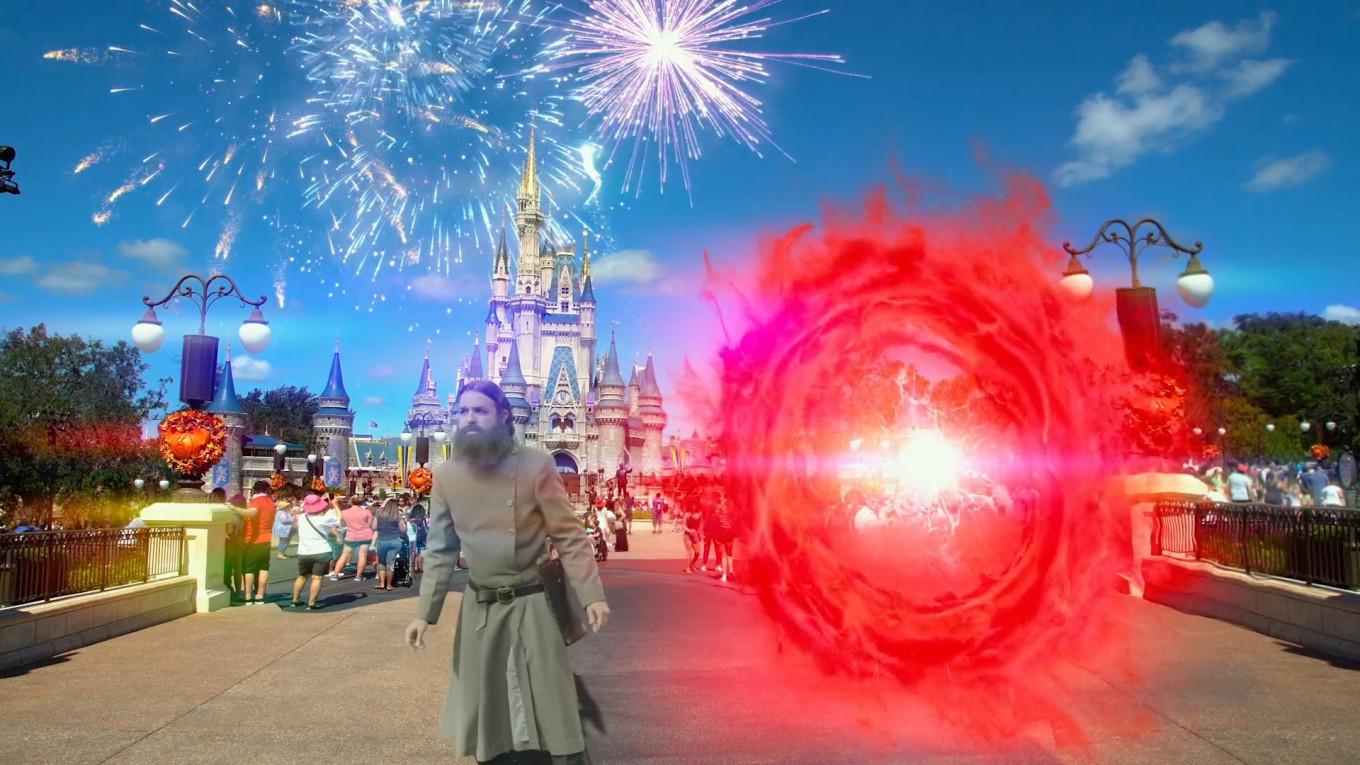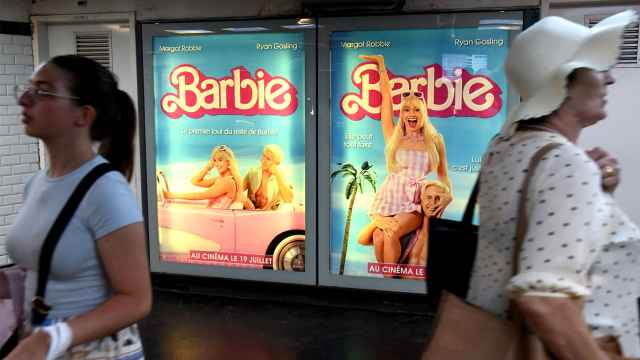A new American film that turns the executions of Russia’s last tsar and his family into a fantasy-tinged teen comedy has caused an uproar among Russians, who say the film mocks their history.
At first, the plot of “Anastasia: Once Upon a Time” sounds outrageous enough to rank among other so-bad-they’re-good classics: As Vladimir Lenin looks to destroy the imperial family, the mystic Rasputin opens up a magical portal, saving Anastasia’s life by sending her from 1918 to late 1980s Wisconsin. There, the Grand Duchess befriends an American girl and frolics around the shopping mall while trying to outrun Rasputin, who is now bound by a magic spell to kill her for the Bolsheviks.
“I love a terrible teen movie,” said Ian Garner, a Russia-focused historian and translator based in Toronto who spoke to The Moscow Times about his experience viewing the film. “Plus I thought the Russia focus could be amazing and hilarious and fun… It wasn’t.”
Russians have responded to the movie’s premise with swift outrage, with hashtags like #HandsOffRussianHistory and #HandsOffAnastasia trending on Russian Twitter in the past week.
Russian Twitter users accuse the film of “cultural appropriation” and trivializing the brutal death of an innocent 17-year-old girl in addition to glaring historical inaccuracies. Others say it insults Anastasia’s memory by depicting the Grand Duchess as uncultured — in one scene, she has dinner with her adopted American family and proceeds to pick up a fistful of spaghetti and eat it from her hand.
“This just spits on our history and culture,” Twitter user @magical_corpse wrote. “It shows a girl who may have been mischievous, but was well-educated and had good manners, as a slob who doesn’t even know how to use a fork.”
“This is the equivalent of making a sitcom about 9/11,” @darkestjune tweeted.
At one point, Anastasia finds a history book that describes the fate of her family — but hardly seems to care that they’ve been murdered, that the Bolsheviks took over Russia or that the Soviet Union is now collapsing.
“She’s just like, ‘Cool, I’m in 1989 now, let’s go to a disco and go rollerblading’,” Garner said.
The list of its other offenses is a long one and includes terrible Russian accents, Lenin’s resemblance to a used car salesman, the whitewashing of Rasputin’s historical legacy and a scene in which Rasputin inexplicably starts to breakdance.
The movie ends with Lenin shooting Anastasia in the heart as she escapes through another portal that brings her back in time to before her family was killed — and she somehow survives and saves her family.
Even the House of Romanov itself has put out a statement condemning the movie, saying it “considers the irreverent portrayal of the Grand Duchess offensive,” but added that it “doesn’t consider it necessary to ban such depictions or sue their creators.”
The fact that this movie was made by Americans certainly didn’t help its reception among Russians given their current sensitivity over Russian stereotypes in pop culture, Garner said.
“[The movie comes from] this very odd conservative American vision of ‘Russia is bad [and the] Soviets are bad’,” he said. "It really relates to what’s going on in the present moment, and this is probably giving the producers too much credit.”

The particularly harsh backlash among Russians also points to how painful of a topic the Romanov killings continue to be in modern Russia.
Nicholas II and his family were finally given a proper burial in St. Petersburg eighty years after their deaths in 1998, with then-President Boris Yeltsin describing their killings as one of the most shameful chapters in Russia’s history. The family members were then canonized as passion-bearers in the Russian Orthodox Church for their "humbleness, patience and meekness" in accepting their deaths.
Among the public, recent state-run polling says a majority of Russians aged 35 and older view the Romanov killings as "a heinous unjustified crime."
“I personally consider this whole situation with the Romanov family a tragedy for Russia and its people,” Anna B., a Moscow-based visual artist, told The Moscow Times. “I think most people would agree with me. Nowadays we, I believe, feel sorrow for everything that happened to them. The fact that they were canonized certainly means something [significant].”
Some Twitter users pointed to the most famous American depiction of Anastasia — the eponymous 1997 animated movie starring Meg Ryan — as a better example of how to add elements of fantasy to history without being disrespectful.
“At least [director] Don Bluth's version was a product of a deliberate choice to remake 50s movie ‘Anastasia,’ which was inspired by the real person, Anna Anderson — the most famous Anastasia impostor [sic]. What's your exuse [sic], guys?”
As for “Anastasia: Once Upon a Time,” Garner strongly recommends doing literally anything else but watch it.
“Just stare at a blank TV for a while, it’ll be more entertaining.”
A Message from The Moscow Times:
Dear readers,
We are facing unprecedented challenges. Russia's Prosecutor General's Office has designated The Moscow Times as an "undesirable" organization, criminalizing our work and putting our staff at risk of prosecution. This follows our earlier unjust labeling as a "foreign agent."
These actions are direct attempts to silence independent journalism in Russia. The authorities claim our work "discredits the decisions of the Russian leadership." We see things differently: we strive to provide accurate, unbiased reporting on Russia.
We, the journalists of The Moscow Times, refuse to be silenced. But to continue our work, we need your help.
Your support, no matter how small, makes a world of difference. If you can, please support us monthly starting from just $2. It's quick to set up, and every contribution makes a significant impact.
By supporting The Moscow Times, you're defending open, independent journalism in the face of repression. Thank you for standing with us.
Remind me later.







